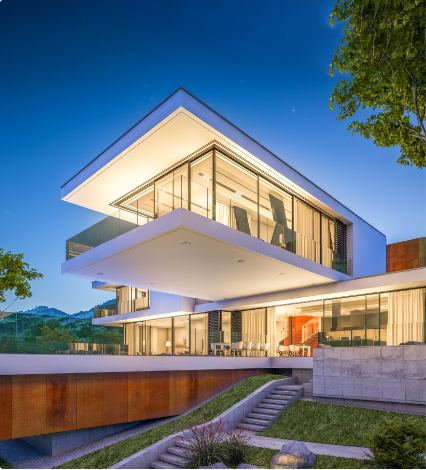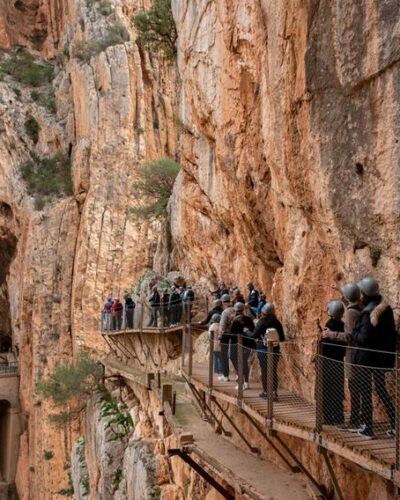Madrid is one of the most popular destinations in Europe for a city break, thanks to its rich culture and artistic atmosphere. The Spanish capital is a fun culture-packed alternative to Barcelona — you can spend endless days losing yourself in art museums, galleries, beautiful architecture, and unmissable sights. The world-class food and drink in the vast array of restaurants, tapas bars, and cocktail bars aren’t to be missed, either.
Madrid is a huge city, and every neighborhood has its own unique personality. Where you choose to stay will set the tone of your vacation, so you’ll want to choose wisely. Here’s how.
How to Choose the Right Neighborhood for Your Trip
The majority of first-time visitors to Madrid are keen to stay in the city center, where they can enjoy easy access to the best attractions. Central Madrid is made up of several diverse neighborhoods which are highly walkable and well-connected to other areas via public transport.
No matter if you’re looking for a luxury vacation or an affordable sightseeing tour, there’s accommodation to suit all budgets and travel styles in the heart of Madrid. Keep reading our list of the best neighborhoods in Madrid for tourists.
Centro for Sightseeing

Highlights: Gran Vía, Puerta del Sol, Plaza Mayor, Royal Palace of Madrid (Palacio Real), Museo de San Isidro
Centro is the most central area of Madrid, and it’s the ideal base for first-time visitors who want to be at the heart of the action. Madrid’s best attractions are all within walking distance, and there’s no shortage of restaurants and bars to enjoy. The area is also home to Gran Vía, the city’s main shopping street, which is a hub for tourists.
Puerta del Sol (The Sun’s Gate) is considered the symbolic center of Madrid, and this lively square is where the six National Roads of Spain converge. Plaza Mayor is another important square in Centro. It features impressive Baroque architecture and is home to some of the city’s best bakeries, tapas, restaurants, cafes, and shops. The winding streets that stretch out beyond the square are fun to explore, and it’s easy to reach the nearby neighborhoods of Latina and Retiro on foot.
Centro offers convenient access to Atocha and Estación de Madrid, the city’s two main train stations if you want a day trip out of the city. There’s a great mix of accommodations in Madrid Centro, including luxurious 5-star hotels and affordable guesthouses.
Prices of accommodation overall are on the higher end because of the central location, but it’s still possible to stay in this neighborhood on a budget. Riu Plaza España is great for a higher budget, while the adults-only Axel Hotel is a great value for a lower budget.
La Latina for Nightlife

Highlights: The Basilica of San Francisco el Grande, The Church of Saint Andrew the Apostle, The Church of Saint Isidore, Museo San Isidro, Corral de la Moraría, El Rastro, Puerta de Toledo
La Latina sits south of Centro and is known for its beautiful architecture. Some of the oldest buildings in the city are situated here, including several impressive churches. This neighborhood is a popular spot for drinks and tapas, particularly along Calle de Cava Baja. On Sundays, it’s also home to El Rastra Flea Market, the biggest in Madrid.
The nightlife in La Latina is excellent. It’s one of the city’s best areas for flamenco and is home to Corral de la Moraría, a restaurant renowned for its flamenco performances. La Latina is a charming area with a fantastic atmosphere, but its bustling nightlife isn’t ideal for those who value a peaceful night’s sleep.
Accommodation here is limited, so your best option is self-catered rentals rather than hotels. The Minty Stay and the Oliver Suite Plaza Mayor are fantastic options.
Lavapiés for Cool Atmosphere

Highlights: Reina Sofía Museum, La Casa Encendida, Teatro del Barrio
East of La Latina is Lavapiés, a multicultural area more residential than touristy. For a long time, this neighborhood has been a hub for immigrants, and it’s known as one of Madrid’s cheapest areas to live. Its affordability has driven an edgy alternative scene that now makes Lavapiés one of the coolest parts of the city.
Given its close proximity to La Latina’s nightlife, Plaza Lavapiés is a popular meeting point for young Madrileños before a night out. Calle Lavapiés and the surrounding side streets are dotted with Indian, African, and Middle Eastern restaurants and stores. Calle Argumosa is popular for al fresco drinks thanks to its trendy hipster bars. The biggest attraction in Lavapiés is the Reina Sofía Museum, one of Spain’s most important contemporary art museums.
There isn’t a great deal of choice in accommodation in Lavapiés, but what is here is affordable. If you want a midrange hotel adjacent to the sights, Lavapiés is a great shout. The 4 Bears Studio is conveniently located and a great value.
Barrio de Las Letras for Culture

Highlights: Thyssen-Bornemisza Museum, The Prado Museum, Paseo del Prado, Plaza Santa Ana
Las Letras, also often called Huertas in reference to the area’s main street (Calle de las Huertas), is a great location for ‘culture vultures.’ Barrio de las Letras translates as the Literary Quarter, where Madrid’s rich literary history is rooted. Many famed Spanish writers lived and wrote here, including Lope de Vega, Quevedo, and Cervantes. Beloved American writer Ernest Hemmingway also spent a great deal of time here.
If you love museums and culture, Las Letras is the perfect place to stay. The ‘Art Triangle’, comprised of the Prado Museum, the Reina Sofía Museum, and the Thyssen-Bornemisza Museum, is just a short walk away.
Passages and quotes from many of Las Letras’ famous residents are written on the streets in gold letters, which makes for a fun treasure hunt as you stroll the streets. Parque del Buen Retiro (El Retiro Park) is also within easy walking distance and is the perfect place to soak up some Spanish sun.
This is a great location for those who want to be in the heart of Madrid’s cultural sights. There are many places to stay in the Literary Quarter, including midrange and budget hotels. The Mandarin Oriental is as posh as it gets, while the Hotel Urban is a boutique stay with Papua New Guinea influences throughout.
Chueca for LGBTQ Travelers

Highlights: LGBTQ+ bars and clubs, Mercado de San Antón, Museum of Romanticism, History Museum of Madrid, Longoria Palace
The small yet vibrant area of Chueca is the heart of Madrid’s LGBTQ+ scene, and it has a welcoming, lively atmosphere that reflects its inclusive population. One of the world’s biggest Pride parades takes place in Chueca, and many LGBTQ+ visitors flock to the neighborhood to get a taste of Madrid’s gay nightlife.
By day, Chueca has a fantastic foodie scene. The neighborhood has an array of hip cafes and restaurants to choose from, and you can spend hours wandering around Mercado San Antón, a three-story food market offering gourmet treats. At night, Cheuca’s many gay clubs and bars come alive where you can party until the early hours.
Chueca has some of the best hotels for travelers on a tight budget. There are lots of cheap hostels and guesthouses here if you’re happy to settle for limited facilities. For a taste of luxury in an otherwise inexpensive area, try the Urso Hotel and Spa.
Salamanca for Luxury

Highlights: National Archaeological Museum, Museum of the National Library, Palacio del Marqués de Salamanca, Puerta de Alcalá
East of Chueca and sitting just north of El Retiro Park is Salamanca, one of Madrid’s most exclusive neighborhoods. It’s packed with high-end stores and boutiques, fine-dining restaurants, upscale cocktail bars, and chic apartment buildings.
During the day, Salamanca is a busy spot for shopping, with most of the action taking place along Calle de Serrano, Calle de Velázquez, and Milla de Oro. At night, the area has a quieter pace, with much of the nightlife centering around dining out.
There’s a great choice of accommodation in Salamanca, including luxury hotels to match the neighborhood’s classy atmosphere. You can also find quirky boutique hotels such as Petit Palace President Castellana here. The Erasmus by gaiarooms is also one of the most beloved options in the area.
Malasaña for Budget Stays

Highlights: Plaza de Dos de Mayo, Church of San Antonio de los Alemanes
To the west of Chueca is Malasaña, which has a grittier atmosphere than much of the rest of the city. In the 1980s, this neighborhood was the heart of the counterculture movement in Madrid. Today, it’s a little more gentrified, but its grungy, hipster attitude remains. There are lots of bars serving craft beers, wines, and cocktails, plus trendy cafes serving brunch and lunch.
There are few sights in Malasaña itself, but it’s just a 10-minute walk to Centro for sightseeing. Much of the action takes place in Plaza de Dos de Mayo, where the rebellion against Napoleon’s occupation is commemorated.
Malasaña is one of the cheapest areas in central Madrid. If you don’t mind the boisterous atmosphere at night, you can benefit from affordable hotel rates here and enjoy Madrid on a budget like the Hotel Princesa Plaza Madrid. Even if you choose not to stay in Malasaña, you’ll likely find yourself drawn to its lively atmosphere and an excellent range of eateries after a busy day of sightseeing in Centro.
Madrid de los Austrias and Ópera for Gorgeous Architecture

Highlights: Plaza Mayor, Plaza de Oriente, Almudena Cathedral, Royal Palace of Madrid, Sabatini Gardens
The historic districts of Los Austrias and Ópera are perfect for those who love history and architecture. Madrid de los Austrias means “Austrian Madrid,” and this is in reference to the Flemish-inspired buildings that populate this area surrounding Plaza Mayor. In the 16th Century, the Austrian Habsburg dynasty occupied Madrid and made their mark in the form of recognizable peak-roofed buildings.
Ópera metro station marks the end of Los Austrias, and it has a slightly more refined appearance and a relaxed atmosphere. This stately neighborhood is home to the grand Palacio Real and the distinguished Plaza de Oriente. You can enjoy some natural beauty in the heart of the city when you visit the gorgeous Sabatini Gardens.
This is a convenient and beautiful portion of the city center to stay in. You’ll find a mix of hotels in Madrid de los Austrias and Ópera, including luxury 5-star stays and budget one and two-star options.
Chamberí for Traditional Madrid

Highlights: Estación Museo Chamberí, Hospital de Maudes, Museo Sorolla
Chamberí is a residential neighborhood that offers an authentic experience. It’s home to many traditional taverns and restaurants that offer good quality food and drink loved by locals. You can also find some great art galleries and theaters that blend tradition with the avant-garde.
A cool sight in Chamberí to check out is Andén Cero (Platform Zero), also known as Estación Fantasma de Chamberí (the Chamberí Ghost Station). It was part of the metro until it fell out of service in 1966. The platform now serves as a time capsule that gives a glimpse into the early days of the metro system and celebrates how the metro revolutionized travel throughout Madrid.
If you’d prefer to stay somewhere free from the hustle and bustle of tourists while enjoying convenient access to the main sights, Chamberí is a great location. There aren’t many hotels in the area, which is part of its charm, so be ready to book well in advance and have a generous budget. Santa Maduro, a Luxury Collection Hotel, is an excellent option.
Argüelles for Young Travelers

Highlights: Plaza de España, Parque del Oeste, Temple of Debod, Museum of the Americas, Museo del Traje
Argüelles is a residential area that’s very popular with students. It has a youthful, lively atmosphere with plenty of bars, and access to central Madrid is a short metro ride away. Argüelles is one of the city’s leafiest neighborhoods — Parque del Oeste is the largest space and is the perfect place to kick back and relax.
Although Madrid’s biggest sights are in the center of the city, there are several points of interest in Argüelles. Check out Ermita de San Antonio de la Florida, Goya’s final resting place, and the Temple of Debod, a reconstructed ancient Egyptian temple donated to Spain in the early 1900s. For a fun day trip out of the city, take the Teleférico de Madrid cable car to the huge Parque Casa de Campo, where you can discover a variety of hiking trails and historic monuments, as well as Madrid’s Zoo Aquarium.
There aren’t too many hotels in Argüelles, and those that are here are situated closest to the city center, near Plaza de España. This is a fairly affordable neighborhood to stay in and best suits young travelers who will appreciate the student atmosphere or those looking for easy access to green space. Melia Madrid Princesa and the LaNave House are two central locations here.
Book Your Dream Madrid Accommodation
There’s an atmosphere and pace to suit every type of traveler in Madrid’s central neighborhoods. Now you know which area fits you best, you can get started finding the perfect Madrid hotel for your visit to this beautiful Spanish metropolis.













